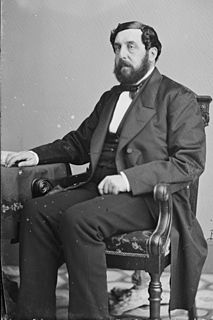A Quote by Henry Theodore Tuckerman
Without the definiteness of sculpture and painting, music is, for that very reason, far more suggestive. Like Milton's Eve, an outline, an impulse, is furnished, and the imagination does the rest.
Related Quotes
I think imagination is at the heart of everything we do. Scientific discoveries couldn't have happened without imagination. Art, music, and literature couldn't exist without imagination. And so anything that strengthens imagination, and reading certainly does that, can help us for the rest of our lives.
After painting comes Sculpture, a very noble art, but one that does not in the execution require the same supreme ingenuity as the art of painting, since in two most important and difficult particulars, in foreshortening and in light and shade, for which the painter has to invent a process, sculpture is helped by nature. Moreover, Sculpture does not imitate color which the painter takes pains to attune so that the shadows accompany the lights.
But the mark of American merit in painting, in sculpture, in poetry, in fiction, in eloquence, seems to be a certain grace withoutgrandeur, and itself not new but derivative; a vase of fair outline, but empty,--which whoso sees, may fill with what wit and character is in him, but which does not, like the charged cloud, overflow with terrible beauty, and emit lightnings on all beholders.
Worship demands the far distances of God; it protests against the little, the near, the material. It must love but it must look up. It cannot live without the note of spirituality and universality, if not mystery. The ascension, the passing of Christ within the veil, answers this need. So does a full-robed Christianity add to definiteness of knowledge the outreach of imagination and home.
To me this world is all one continued vision of fancy or imagination, and I feel flattered when I am told so. What is it sets Homer, Virgil and Milton in so high a rank of art? Why is the Bible more entertaining and instructive than any other book? Is it not because they are addressed to the imagination, which is spiritual sensation, and but immediately to the understanding or reason?
I'd been making music that was intended to be like painting, in the sense that it's environmental, without the customary narrative and episodic quality that music normally has. I called this 'ambient music.' But at the same time I was trying to make visual art become more like music, in that it changed the way that music changes.
Sculpture and painting are very justly called liberal arts; a lively and strong imagination, together with a just observation, being absolutely necessary to excel in either; which, in my opinion, is by no means the case of music, though called a liberal art, and now in Italy placed even above the other two--a proof of the decline of that country.
I don't have a very high opinion, actually, of the world of criticism - or the practice of criticism. I think I admire art criticism, criticism of painting and sculpture, far more than I do that of say films and books, literary or film criticism. But I don't much like the practice. I think there are an awful lot of bad people in it.






































